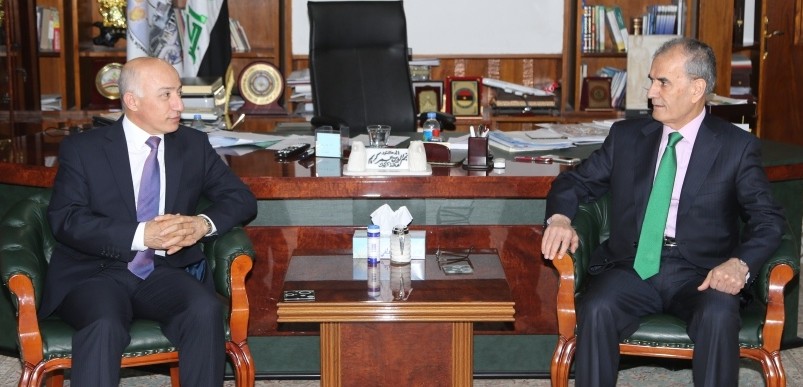Representatives from the institute have been meeting with key representatives from Kirkuk in order to gain further understanding about the situation on the ground and possible strategies that may lead towards a political solution. To this end, MERI held an insightful meeting with the Governor of Kirkuk, Dr. Najmaddin Kareem, on April 6th in Kirkuk.
Professor Dlawer Ala’Aldeen, president of MERI, highlighted the importance of resolving the issue of Kirkuk and the need to engage decision-makers and community representatives from Kirkuk in any policy debate. He also outlined the research projects being initiated at MERI through which the institute aims to influence the decision making process.
Certain key issues relating to the future of Kirkuk were addressed in detail. These topics ranged from confidence building measures, details of Article 140, and the perception of Kirkuk’s diverse communities for the future of the disputed province and possible solutions. Referring to the future of Kirkuk, the governor mentioned that the issue cannot be solved by force, rather a form of consensus needs to be reached.
The Governor of Kirkuk expressed his support to for MERI’s Kirkuk research project. The Governor agreed to information sharing for the research process. MERI is at the phase of finalizing the report which will be disseminated at later stages. The research looks to focus on grass-roots perspectives towards top-down political strategies; aiming to provide a deeper understanding of the views of key stakeholders.
* * * * *
About MERI: The Middle East Research Institute is Iraq’s leading policy-research institute and think tank. It is an independent, entirely grant-funded not-for-profit organisation, based in Erbil, Kurdistan Region. Its mission is to contribute to the process of nation-building, state-building and democratisation via engagement, research, analysis and policy debates.
MERI’s main objectives include promoting and developing human rights, good governance, the rule of law and social and economic prosperity. MERI conduct high impact, high quality research (including purpose-based field work) and has published extensively in areas of: human rights, government reform, international politics, national security, ISIS, refugees, IDPs, minority rights (Christians, Yezidis, Turkmen, Shabaks, Sabi mandeans), Baghdad-Erbil relations, Hashd Al-Shabi, Peshmarga, violence against women, civil society. MERI engages policy- and decision-makers, the civil society and general public via publication, focused group discussions and conferences (MERI Forum).


